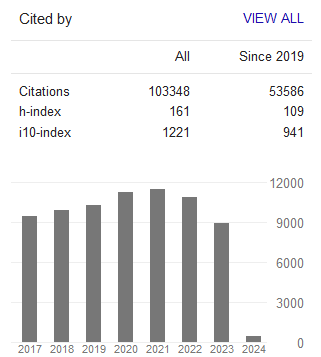The Impact of Tourism on the Local Economy in Malaysia
- Chin-Hong Puah
- Meng-Chang Jong
- Norazirah Ayob
- Shafinar Ismail
Abstract
The local and international communities play an important role in the sustainable growth of the Malaysian tourism industry. The principle of sustainable growth in the tourism industry was proposed by the World Tourism Organization (WTO) in 1988. As the tourism industry is one of the largest and fastest growing industries in Malaysia, the government has poured considerable effort into promoting this industry consistent with the objective of the Economic Transformation Program (ETP) to transform from a resource-based economy to a service-based economy. This study aimed to test the hypothesis of tourism-led growth from Malaysia’s perspective. The tourism revenue earned by the government can be used to invest in industry to further promote economic growth in Malaysia. Hence, tourist receipts and capital investment in the tourism industry are important factors that can affect the nation’s economic growth. Utilizing Malaysian data from 1995 to 2016, the study employed the Autoregressive Distributed Lag (ARDL) approach to examine whether the tourism-led growth is valid in this study. Empirical findings indicated that both variables have a significant positive impact on economic growth and the hypothesis of tourism-led growth is accepted in Malaysia.- Full Text:
 PDF
PDF
- DOI:10.5539/ijbm.v13n12p151
Journal Metrics
Google-based Impact Factor (2023): 0.86
h-index(2023): 152
i10-index(2023): 1168

Index
- Academic Journals Database
- AIDEA list (Italian Academy of Business Administration)
- ANVUR (Italian National Agency for the Evaluation of Universities and Research Institutes)
- Berkeley Library
- CNKI Scholar
- COPAC
- EBSCOhost
- Electronic Journals Library
- Elektronische Zeitschriftenbibliothek (EZB)
- EuroPub Database
- Excellence in Research for Australia (ERA)
- Genamics JournalSeek
- GETIT@YALE (Yale University Library)
- IBZ Online
- JournalTOCs
- Library and Archives Canada
- LOCKSS
- MIAR
- National Library of Australia
- Norwegian Centre for Research Data (NSD)
- PKP Open Archives Harvester
- Publons
- Qualis/CAPES
- RePEc
- ROAD
- Scilit
- SHERPA/RoMEO
- Standard Periodical Directory
- Universe Digital Library
- UoS Library
- WorldCat
- ZBW-German National Library of Economics
Contact
- Stephen LeeEditorial Assistant
- ijbm@ccsenet.org
